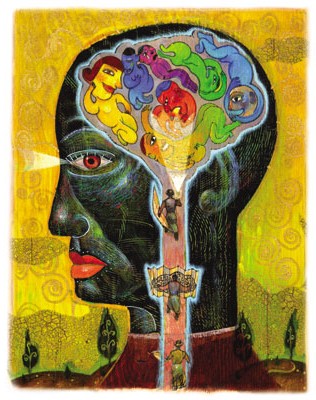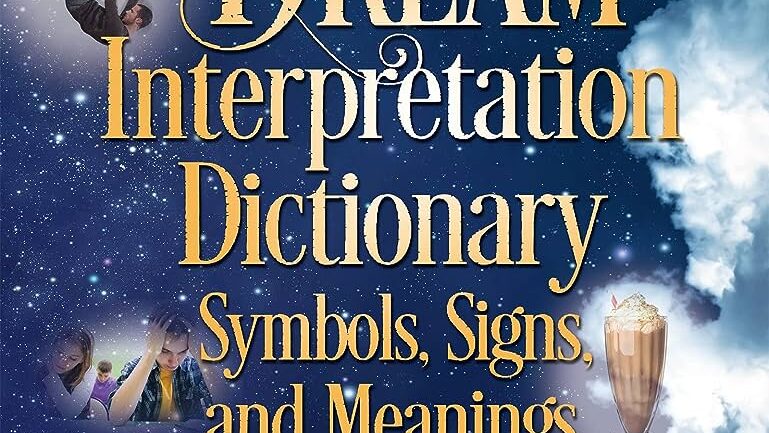Have you ever awakened from a dream with your heart racing or tears in your eyes? Dreams have long fascinated humans, serving as a mysterious gateway to our subconscious mind. These nightly visions can carry a potent emotional charge, leaving us pondering their meanings. In this exploration, we unravel the complexities of emotional dreams and delve into what they truly signify.
Understanding Dreams: An Overview
Dreams have been an integral part of human experience throughout history. From ancient civilizations attributing dreams to divine messages to modern psychology dissecting their psychological underpinnings, dreams have intrigued us. These subconscious journeys occur during rapid eye movement (REM) sleep, transporting us to realms where reality blends with imagination.
The Complex World of Emotional Dreams
Emotional dreams are a vivid subset of these nocturnal escapades. These dreams are characterized by their ability to evoke a wide spectrum of emotions – fear, joy, sadness, anger, and more. Such dreams can sometimes be even more emotionally intense than real-life experiences, prompting us to question their purpose and implications.
Theories on Dream Interpretation
The quest to decipher dream meanings has given rise to various theories over the years. Sigmund Freud’s psychoanalytic approach proposed that dreams are a playground for hidden desires and repressed thoughts. Carl Jung introduced the concept of archetypes, symbols that tap into our collective unconscious. Modern cognitive theories and neuroscientific interpretations offer more rational explanations for dream phenomena, but none can fully capture the complexity.
The Connection Between Emotions and Dreams
Emotional dreams aren’t arbitrary; they often reflect our real-life emotions. During REM sleep, our brain processes emotions, consolidates memories, and supports emotional regulation. Dreams can be a safe space to explore complex feelings, providing an opportunity to confront fears, heal from trauma, and find solace.
Deciphering Emotional Symbols in Dreams
Dream symbolism adds another layer of intrigue to emotional dreams. Objects, scenarios, or even people in dreams often carry deeper meanings. For instance, water might symbolize cleansing and renewal, while flying might represent liberation. However, these symbols are highly personal and can vary based on individual experiences and cultural influences.
Factors Influencing Emotional Dreams
The content of emotional dreams can be influenced by various factors. Stress, trauma, and mental health conditions can trigger vivid dreams. Cultural background and personal beliefs also shape dream narratives. These dreams can act as mirrors reflecting our inner turmoil or offering insight into our current state of mind.
Unraveling Nightmares: Exploring the Dark Side
Nightmares, the darker counterparts of emotional dreams, plunge us into intense fear or distress. While occasional nightmares are normal, recurring ones might indicate underlying issues such as anxiety disorders or post-traumatic stress disorder (PTSD). Understanding the triggers and themes behind nightmares can aid in addressing these concerns.
Harnessing the Wisdom of Emotional Dreams
Emotional dreams aren’t just fleeting episodes; they hold potential wisdom. Artists, scientists, and inventors have drawn inspiration from their dreams. Paul McCartney famously dreamt the melody for “Yesterday,” while chemist Friedrich August Kekulé visualized the structure of benzene in a dream. These instances highlight the creative power of our subconscious mind.
Practical Approaches to Analyzing Emotional Dreams
Unlocking the meanings behind emotional dreams requires active engagement. Keeping a dream journal can aid in capturing details, emotions, and symbols. Techniques like visualization and meditation can help recall dreams more vividly. Self-reflecting on dream content, perhaps with the assistance of dream dictionaries, can offer personal insights.
Ethical and Psychological Considerations

While delving into dream interpretation can be enlightening, it’s essential to navigate this realm with caution. Over-analyzing dreams might lead to unnecessary anxiety. Disturbing or recurring emotional dreams should prompt seeking professional help, especially if they interfere with daily life. Online dream interpretation tools can provide guidance but lack the personalized touch of human insight.
Frequently Asked Questions (FAQs)
- What are the most common emotions experienced in dreams?
- Can dreams predict our real-life emotional state?
- How can cultural background influence dream symbolism?
- Are nightmares only caused by negative emotions?
- Is it possible to control the emotional content of dreams?
- Should I be concerned about recurring emotional dreams?
- How accurate are online dream interpretation tools?
- Can children experience intense emotional dreams?
- What’s the relationship between lucid dreaming and emotional dreams?
- When should I consider seeking professional help for my emotional dreams?
Conclusion
Emotional dreams continue to mystify and captivate us. As we peel back the layers of these subconscious experiences, we gain insights into our emotions, fears, and desires. While dream interpretation is an art that remains open to interp her explanation retation, embracing our dreams as a source of self-discovery can lead to personal growth, healing, and a deeper understanding of the human psyche.

Welcome to my website! My name is Patrick Petherick, and I am a professional Emotional Dream Coach. I am passionate about helping individuals understand the profound symbolism and meaning behind their dreams, and guiding them towards emotional healing and personal growth. Check it





